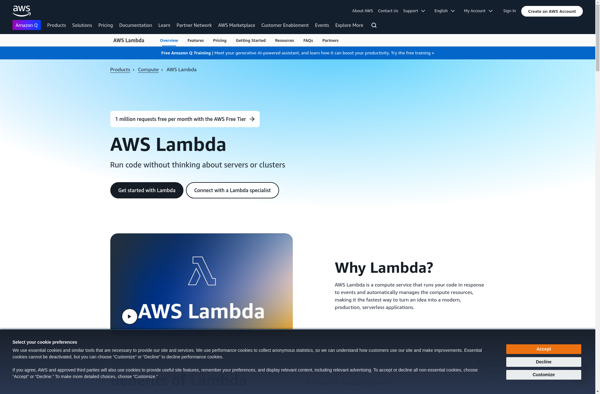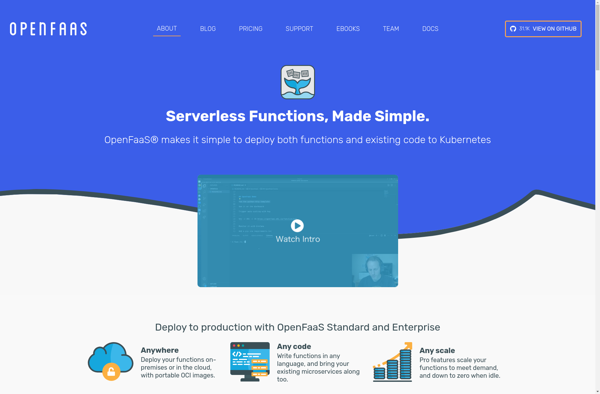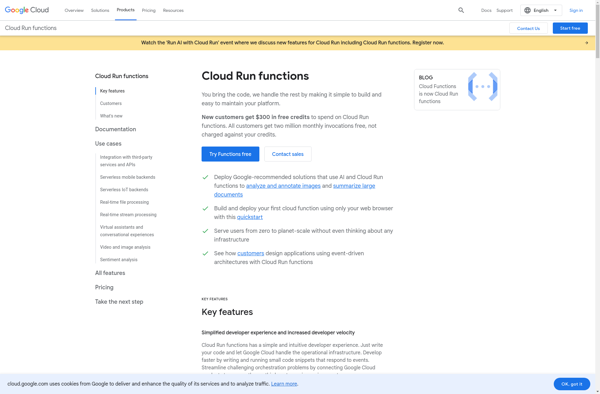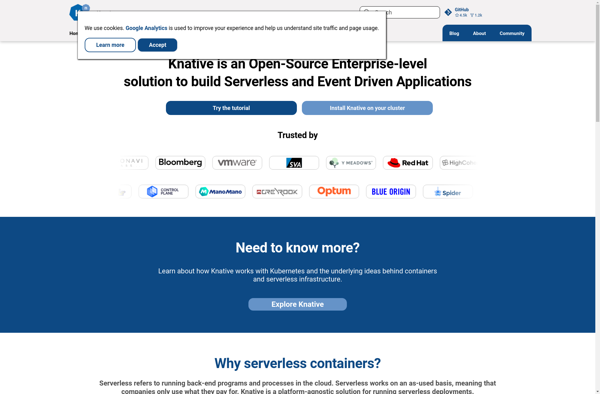AWS Lambda

AWS Lambda: Serverless Computing Service
AWS Lambda is a serverless computing service that runs code in response to events and automatically manages the computing resources, allowing users to run code without provisioning servers.
What is AWS Lambda?
AWS Lambda is a serverless computing service provided by Amazon Web Services (AWS). It allows users to run code without having to provision or manage servers. With Lambda, users can upload code and Lambda takes care of everything required to run and scale the code in response to events.
When an event occurs (e.g., file upload, API call), Lambda runs the user-uploaded code. The code can be written in various languages including Node.js, Python, Java, C# and more. The code can trigger other AWS services and Lambda can scale up or down automatically based on demand.
Key benefits of AWS Lambda include:
- No servers to manage - Lambda completely abstracts away servers
- Continuous scaling - Scales up and down automatically
- Pay per use - Pay only for compute time consumed
- Integrates with other AWS services - Triggers other AWS services
- Supports multiple languages - Code can be written in Node.js, Python, Java etc
Lambda is used to build serverless applications, process streaming data, create backends for mobile apps and react to various event sources. It can help reduce operational complexity and lower costs for applications that have variable workloads or occasional spikes in traffic.
AWS Lambda Features
Features
- Serverless - no servers to manage
- Event-driven - runs code in response to events
- Automatically scales - handles any volume of events
- Pay per use - pay only for compute time
- Integrates with other AWS services
Pricing
- Pay-As-You-Go
Pros
Cons
Official Links
Reviews & Ratings
Login to ReviewThe Best AWS Lambda Alternatives
Top Ai Tools & Services and Serverless Computing and other similar apps like AWS Lambda
Here are some alternatives to AWS Lambda:
Suggest an alternative ❐PythonAnywhere

Google App Engine

OpenFaas

Google Cloud Functions

Knative
